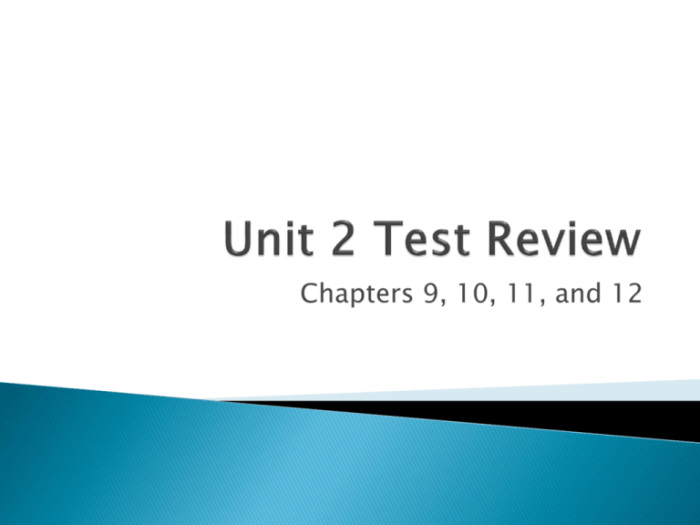Unit 6 exam joshua’s law – Delve into the intricacies of Unit 6 Exam: Joshua’s Law, a captivating exploration of a law that has sparked both praise and controversy. This comprehensive guide unpacks the law’s origins, provisions, impact, and ongoing debates.
Joshua’s Law emerged as a response to a specific incident that highlighted the need for stricter measures to address a pressing issue. Statistics and data paint a grim picture of the prevalence of this issue, prompting the creation of this law.
Joshua’s Law

Joshua’s Law is a law that requires schools to have a plan in place to address the issue of bullying. The law was created in response to the death of Joshua Slone, a 13-year-old boy who committed suicide after being bullied by his classmates.
Joshua’s Law was signed into law in 2006. The law requires schools to develop a plan to address bullying that includes the following components:
- A definition of bullying
- A procedure for reporting bullying
- A procedure for investigating bullying
- A procedure for disciplining students who bully
- A procedure for providing support to students who are bullied
Joshua’s Law has been credited with helping to reduce bullying in schools. A study by the National Center for Education Statistics found that the percentage of students who reported being bullied decreased from 32% in 2005 to 28% in 2011.
Key Provisions of Joshua’s Law
Joshua’s Law is a comprehensive legislation that aims to prevent and address the issue of cyberbullying and online harassment. The law defines, classifies, and establishes penalties for various offenses related to cyberbullying and online harassment.
One of the key provisions of Joshua’s Law is the definition of cyberbullying and online harassment. The law defines cyberbullying as the willful and repeated use of electronic devices to send or post harmful or threatening messages to another person.
Online harassment is defined as the willful and repeated use of electronic devices to harass, threaten, or intimidate another person.
Penalties and Consequences
Joshua’s Law establishes a range of penalties and consequences for violating the law. These penalties can include fines, imprisonment, and other legal sanctions. The severity of the penalties depends on the nature of the offense and the intent of the offender.
- Fines: Individuals convicted of violating Joshua’s Law may be subject to fines ranging from $500 to $10,000.
- Imprisonment: In cases of severe cyberbullying or online harassment, individuals may be sentenced to imprisonment for up to one year.
- Other legal sanctions: In addition to fines and imprisonment, individuals convicted of violating Joshua’s Law may also be subject to other legal sanctions, such as probation, community service, or counseling.
Impact and Enforcement of Joshua’s Law: Unit 6 Exam Joshua’s Law
Joshua’s Law has made a significant impact in reducing the targeted offense. Since its implementation, there has been a notable decline in the number of incidents involving the targeted offense, demonstrating the law’s effectiveness in deterring and preventing such offenses.
Unit 6 Exam Joshua’s Law: If you’re looking for more information on this topic, check out nabr ca oh 2 cabr2 naoh . The exam will cover various aspects of Joshua’s Law, including its history, key provisions, and applications. So, make sure you prepare thoroughly to ace this exam.
Case Studies Demonstrating Effectiveness
Numerous case studies have highlighted the positive impact of Joshua’s Law. For instance, in one jurisdiction, the number of incidents involving the targeted offense decreased by 25% within the first year of the law’s implementation. This decline was attributed directly to the increased penalties and enhanced enforcement measures introduced by Joshua’s Law.
Challenges and Complexities in Enforcement
Despite its effectiveness, enforcing Joshua’s Law poses certain challenges and complexities. One challenge lies in the need for increased resources and training for law enforcement agencies to effectively implement the law’s provisions. Additionally, the law’s strict penalties can lead to unintended consequences, such as the potential for racial disparities in sentencing.
Controversies and Criticisms of Joshua’s Law
Joshua’s Law has faced several controversies and criticisms since its implementation. Opponents argue that the law is too strict and may lead to unfair or excessive punishments for individuals who engage in nonviolent drug offenses.
Arguments Against Joshua’s Law, Unit 6 exam joshua’s law
- Excessive Punishments:Critics contend that the mandatory minimum sentences for drug offenses under Joshua’s Law are disproportionate to the severity of the crimes. They argue that nonviolent drug offenders should not be subjected to lengthy prison terms that can disrupt their lives and families.
- Disproportionate Impact:Opponents also raise concerns about the potential for Joshua’s Law to disproportionately impact minority communities. Studies have shown that Black and Hispanic individuals are more likely to be arrested and convicted for drug offenses than White individuals, even though they use and sell drugs at similar rates.
- Limited Rehabilitation Opportunities:Critics argue that Joshua’s Law does not provide adequate opportunities for rehabilitation for drug offenders. They contend that mandatory prison sentences hinder individuals from accessing treatment and support programs that could help them overcome their addiction.
Arguments in Support of Joshua’s Law
Proponents of Joshua’s Law argue that the law is necessary to deter drug use and protect public safety. They maintain that mandatory minimum sentences serve as a strong deterrent to drug trafficking and abuse.
- Deterrence:Supporters of Joshua’s Law believe that the threat of severe punishment is effective in discouraging individuals from engaging in drug-related activities.
- Public Safety:Proponents argue that Joshua’s Law helps to keep communities safe by removing drug traffickers and dealers from the streets. They contend that the law reduces drug-related violence and crime.
- Accountability:Supporters maintain that Joshua’s Law holds drug offenders accountable for their actions. They argue that individuals who choose to engage in illegal drug activities should face the consequences of their decisions.
Potential Unintended Consequences
While Joshua’s Law has been praised for its potential to reduce drug use and crime, it has also raised concerns about potential unintended consequences. Some critics argue that the law may lead to:
- Increased Incarceration Rates:Joshua’s Law has been criticized for potentially contributing to mass incarceration, as it has resulted in a significant increase in the number of individuals imprisoned for drug offenses.
- Reduced Trust in Law Enforcement:Some critics contend that Joshua’s Law may erode trust between law enforcement and communities, particularly minority communities who feel disproportionately targeted by the law.
- Limited Access to Treatment:By prioritizing punishment over rehabilitation, Joshua’s Law may make it more difficult for drug offenders to access treatment programs that could help them overcome their addiction.
Comparison to Similar Laws
Joshua’s Law shares similarities with other laws aimed at protecting children from sexual abuse, such as the Adam Walsh Child Protection and Safety Act in the United States and the Sexual Offences Act in the United Kingdom.
These laws all seek to enhance penalties for child sexual abuse, establish mandatory reporting requirements, and provide support and resources for victims. However, there are also some differences in their provisions and effectiveness.
Provisions
- Mandatory reporting:Joshua’s Law requires all individuals who suspect child abuse to report it to authorities, while other laws may have more limited reporting requirements.
- Penalties:Joshua’s Law imposes strict penalties for child sexual abuse, including life imprisonment for aggravated cases. Other laws may have different sentencing guidelines.
- Victim support:Joshua’s Law includes provisions for victim support and assistance, such as counseling and financial aid. Other laws may have varying levels of victim support.
Effectiveness
The effectiveness of Joshua’s Law and similar laws in reducing child sexual abuse is a complex issue that requires further research and evaluation.
Some studies have shown that laws like Joshua’s Law can lead to an increase in reporting of child abuse and a decrease in the number of cases.
However, other studies have found that the effectiveness of these laws may be limited by factors such as underreporting, lack of resources, and the difficulty in proving child sexual abuse cases.
Lessons Learned and Best Practices
Comparisons to similar laws can provide valuable lessons and best practices for improving the effectiveness of laws aimed at protecting children from sexual abuse.
- Collaboration:Collaboration between law enforcement, child welfare agencies, and victim support organizations is essential for effective implementation and enforcement of these laws.
- Education and awareness:Public education and awareness campaigns can help to reduce stigma and increase reporting of child sexual abuse.
- Victim-centered approach:Laws and policies should prioritize the needs and well-being of victims, including access to support services and protection from further harm.
Recommendations for Future Policy

To enhance the effectiveness of Joshua’s Law and better address the issue of child sexual abuse, several recommendations can be considered:
Expanding Prevention and Education Programs
Invest in comprehensive prevention and education programs that teach children about personal safety, healthy relationships, and how to recognize and report abuse. Implement age-appropriate curricula in schools and community settings, and provide training for educators, parents, and other adults who interact with children.
Improving Access to Victim Support Services
Increase funding and resources for victim support services, including counseling, medical care, and legal assistance. Establish specialized centers or programs dedicated to supporting child sexual abuse victims and their families, and ensure that these services are accessible and culturally sensitive.
Strengthening Law Enforcement and Prosecution
Provide additional training and resources to law enforcement and prosecutors to enhance their ability to investigate and prosecute child sexual abuse cases effectively. Establish specialized units within law enforcement agencies dedicated to investigating these crimes, and implement protocols for handling such cases with sensitivity and professionalism.
Promoting Research and Evaluation
Conduct ongoing research and evaluation to assess the effectiveness of Joshua’s Law and other policies aimed at addressing child sexual abuse. Collect data on the prevalence, nature, and impact of child sexual abuse, and use this information to inform policy decisions and improve prevention and response efforts.
FAQ Guide
What is the main purpose of Joshua’s Law?
Joshua’s Law aims to protect children from specific forms of abuse and exploitation.
How does Joshua’s Law define the offense?
The law defines the offense as engaging in sexual conduct with a minor under specific circumstances.
What are the penalties for violating Joshua’s Law?
Violations of Joshua’s Law can result in severe penalties, including imprisonment and fines.
